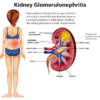Understanding Lactose Intolerance: Ayurvedic Perspectives and Remedies
Understanding Lactose Intolerance: Ayurvedic Perspectives and Remedies is a common digestive issue affecting millions worldwide. It occurs when the body lacks enough lactase, the enzyme needed to digest lactose, a sugar found in milk and dairy products. Symptoms can include bloating, gas, diarrhea, and abdominal pain. While modern medicine offers various approaches to managing lactose intolerance, Ayurveda, an ancient system of medicine from India, provides unique insights and natural remedies. This blog explores lactose intolerance from an Ayurvedic perspective, offering holistic strategies for relief and management.
What is Lactose Intolerance?

Lactose intolerance results from the body’s inability to adequately digest lactose. It is often confused with a milk allergy, which is an immune response to proteins in milk rather than a digestive issue. Symptoms of lactose intolerance can vary in intensity and may include:
- Bloating
- Gas
- Diarrhea
- Stomach cramps
- Nausea
These symptoms can appear anywhere from 30 minutes to two hours after consuming lactose-containing foods.
Ayurvedic Perspective on Digestion
Ayurveda emphasizes the balance of three doshas: Vata, Pitta, and Kapha. Each dosha represents different biological functions and qualities in the body. Digestion, known as “Agni” in Ayurveda, is considered crucial for overall health. When Agni is strong, digestion is efficient, leading to better nutrient absorption and a healthier body. However, when Agni is weak or imbalanced, it can lead to various digestive issues, including lactose intolerance.
Types of Agni
- Samagni: Balanced digestion.
- Tikshnagni: Excessively strong digestion, which can lead to irritability.
- Manda Agni: Weak digestion, leading to the accumulation of toxins (Ama).
- Vishama Agni: Irregular digestion, alternating between strong and weak.
Individuals with lactose intolerance typically have Manda Agni, leading to difficulties in digesting dairy products. Ayurveda suggests that addressing the root cause—imbalanced Agni—can help manage lactose intolerance effectively.
Ayurvedic Assessment of Lactose Intolerance
In Ayurveda, diagnosis involves understanding an individual’s constitution (Prakriti) and current state (Vikriti). A practitioner will assess the dosha imbalances and consider factors such as diet, lifestyle, and emotional well-being.
Symptoms and Dosha Association
- Vata Dosha: Individuals may experience dry, irregular digestion with symptoms like gas and bloating.
- Pitta Dosha: Those with Pitta imbalances might experience burning sensations, diarrhea, or acid reflux.
- Kapha Dosha: Symptoms may include heaviness and lethargy after consuming dairy.
By understanding which dosha is imbalanced, Ayurvedic practitioners can tailor treatment plans to restore balance.
Dietary Recommendations
Choosing Digestible Dairy Alternatives
Ayurveda encourages individuals with lactose intolerance to consider dairy alternatives that are easier to digest:
- Aged Cheeses: Cheeses like Parmesan and cheddar have lower lactose content.
- Yogurt: The probiotics in yogurt can aid digestion and help break down lactose.
- Buttermilk (Chaach): This traditional drink is easier to digest and is often recommended for those with lactose intolerance.
- Plant-based Milks: Almond, coconut, and soy milks are excellent alternatives that are naturally lactose-free.
Incorporating Spices for Digestion
Spices play a crucial role in Ayurveda. Certain spices can enhance Agni and promote better digestion:
- Ginger: Known for its digestive properties, ginger can help soothe the stomach and enhance Agni.
- Turmeric: An anti-inflammatory spice that supports overall digestive health.
- Cumin: Aids in digestion and can help reduce bloating.
- Fennel: Traditionally used to relieve gas and improve digestive comfort.
Meal Timing and Food Combinations
Ayurveda emphasizes the importance of meal timing and combinations:
- Eat Warm Meals: Consuming warm, cooked meals is recommended to support digestion.
- Avoid Cold Foods: Cold or raw foods can aggravate Vata and hinder digestion.
- Food Pairing: Combining foods wisely can enhance digestion. For example, pairing dairy with spices like black pepper or ginger can make it more tolerable.
Herbal Remedies for Lactose Intolerance
Ayurveda offers various herbs that can help improve digestion and mitigate symptoms of lactose intolerance:
1. Triphala
A combination of three fruits (Amalaki, Bibhitaki, and Haritaki), Triphala is a powerful digestive tonic that can help regulate bowel movements and improve overall gut health.
2. Ajwain (Carom Seeds)
Ajwain is known for its carminative properties, helping to relieve gas and bloating. It can be consumed as a tea or added to dishes.
3. Pippali (Long Pepper)
Pippali enhances Agni and helps with digestive issues. It can be taken in powder form or as a supplement.
4. Ginger Tea
A simple ginger tea can soothe the digestive tract and help in the digestion of lactose when consumed before meals.
Lifestyle Modifications
In addition to dietary changes, certain lifestyle modifications can further help manage lactose intolerance:
1. Mindful Eating
Practicing mindful eating can enhance digestion. Chewing food thoroughly and eating in a calm environment helps in the digestive process.
2. Regular Exercise
Physical activity supports digestion by promoting blood circulation and stimulating digestive organs. Gentle exercises like yoga, walking, and pranayama (breathing exercises) can be beneficial.
3. Stress Management
Emotional health significantly impacts digestion. Incorporating stress-reduction techniques such as meditation, yoga, and deep-breathing exercises can improve overall gut health.
Conclusion
Understanding Lactose Intolerance: Ayurvedic Perspectives and Remedies can be a challenging condition, but Ayurveda offers a holistic approach to managing it. By focusing on dietary modifications, herbal remedies, and lifestyle changes, individuals can restore balance to their Agni and improve their digestive health. Always consult with a qualified Ayurvedic practitioner to develop a personalized plan tailored to your specific needs.
Embracing Ayurveda not only provides relief from lactose intolerance but also fosters a deeper understanding of your body’s unique constitution and its needs, leading to overall well-being. With the right approach, lactose intolerance can be managed effectively, allowing you to enjoy a varied and fulfilling diet.








Leave a reply